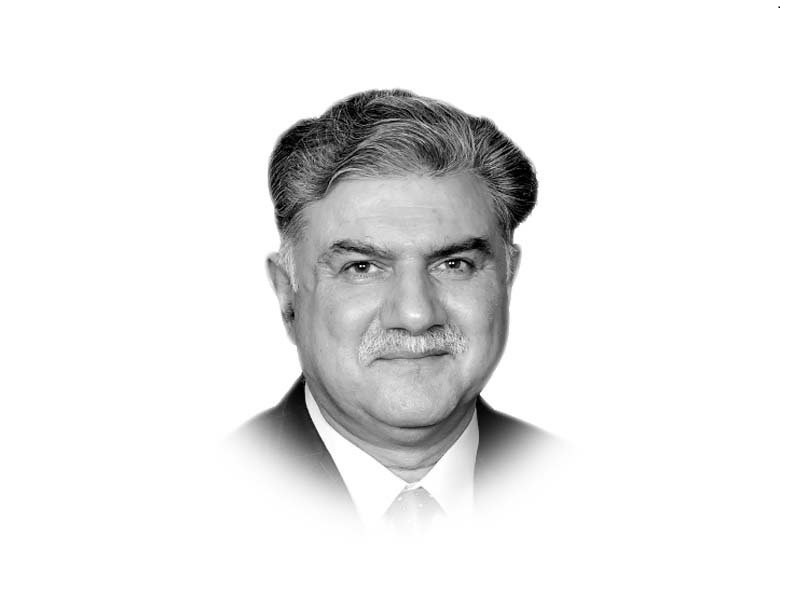
That warm December day was bright and sunny. I was on a yearlong training with the Australian Army’s Command and Staff College in Queenscliff (Victoria), Australia, around a quarter century ago. At the nearby community park next to my unfenced lawn, I engaged a group of elderly men in small talk. They were out there to trim hedges, mow lawns and pick trash from the park, doing community service voluntarily. They apprised me that the town council didn’t have enough funds to undertake such services.
Fast forward fifteen years… during a function in the Kohat Garrison Cadet College, I asked an elderly senior colleague what he was doing as he had recently re-retired after some three tenures in different positions, following his superannuation from government service years ago. When he lamented that he was out of work, I asked him why he was not volunteering to teach in the school run by his wife. He did not take kindly to my suggestion.
The above two anecdotes demonstrate our diametrically opposed attitudes towards community service, volunteer work and doing something without remunerations. Although there are success stories of volunteer work here and there, these are few and far apart.
The statutory retirement age fixed under the 1954 Pension-cum-Gratuity Scheme for civil servants in Pakistan is 60 years, with some discussion/decisions recently to raise it to 62 years selectively. Internationally, it is revised to 65 years in some countries. Life expectancy (men) in Pakistan during the last five decades has risen from 52 in 1970 to 68 years in 2018. As per government estimates, there are around three million pensioners in Pakistan.
Let’s see a snapshot of the able-bodied and well-to-do pensioners. For this, we keep the bar at Basic Pay Scale (BPS)-19 and above to have a robust sampling of the retired bureaucracy. According to the Annual Statistical Bulletin of Federal Government Employees for 2019-20, the sanctioned strength of the Federal Government (civil employees) only is 672,317. This includes 4,444 officers in grades 19-22. Officers in BPS 17-22 interestingly constitute only 4.69% of the actual working strength, as the remaining 95.31% are in BPS 1-16. If you include the provincial cadres at half the average strength of Federal Government, the total strength of this top bureaucracy is around 15,000.
Civil service in Pakistan takes in about 200 officers yearly (not including the provincial cadres), with assured upward mobility as generally no one is weeded out. As a thumb rule, if we take retirement equal to the intake or marginally less and consider ‘60-65 years’ as productive years beyond retirement, the estimated number of mostly healthy and relatively affluent retired civil servants nationwide is easily over 10,000 (AGP promised to provide the exact data in near future). Add to this those retiring/retired from the government/semi-government and autonomous corporations, educational institutions, judiciary public and private companies etc. And irrespective of the exact data, we have a very sizeable (mostly complaining) pool of very experienced manpower that needs to be self-employed ‘productively’ in the larger national interest.
The Army alone, on the other hand, takes in about 800 to 1,000 cadets in two batches leaving lateral entries like technical cadets, doctors, etc aside. Almost 35% officers on the average are promoted to Lieutenant Colonel (BPS-19 equivalent) and beyond. At any one time, among this lot, an estimated 15,000 are available (mostly Lt Cols and under 65 years) out of the total population of around 38,000 retired officers. This manpower combined with veterans from PAF, PN and the retired civil servants, etc is a formidable asset that a developing country like Pakistan cannot afford to overlook.
Voluntary employment/utilisation is popular internationally. There are organisations that help retiree(s) find rewarding volunteer work closer or away from home. Some of these organisations are Koya Leadership Partners, Senior Corps, Global Volunteers and Volunteer Match, etc. It goes without saying that volunteering among seniors improves quality of life, increases physical activity, strengthens social networking and lowers mortality rates. Other key benefits include reducing the risk of social isolation, aging-related anxieties and enhanced self-esteem.
Some significant areas where these valuable retirees could be involved are teaching a subject at local educational institutions, counselling younger kids/youth, joining a community service project, working in the parks, helping out families at the hospital and/or teaching individual talent… and many more. If social taboos are not restraining, retirees in our society — as in many other countries — can emulate tasks such as regular trash collection, traffic guidance especially in school hours, tree plantation and beach/mountain cleaning, etc. Or as an alternative, our affluent group can hire someone to help out in these tasks.
Leaving everything to the Government and then complaining about this or that issue does nothing for bringing material difference in our lives and surroundings. Governments in almost all countries find themselves constrained to provide optimum services, unless beefed up with volunteers. In almost all cities in China and Australia — as witnessed — healthy retirees help out school kids cross roads, for example, as not as many traffic cops can be made available.
The purpose of singling out only BPS 19-22 is due to the relative affluence of this Group and their ability to undertake the cited initiatives themselves or though hired hands. Those retired in BPS-18 and lower are expected to be employed out of economic compulsions. However, that Group also can undertake society-improving social work during weekends or during vacations, as possible.
The government’s regulation of voluntary social work is almost definitely a non-starter, as Government ends up constituting committees that it mostly does, with no visible improvement on ground. However, Government can incentivise voluntary work after careful analysis. One such area could be tax relief for the retirees, that profits from the potential social work are likely to pay for. Government can also motivate and encourage such undertakings through appreciation and recognition. Media can be a big help to instill and promote this culture.
In a win-hungry Pakistan, folding sleeves by this huge pool of well-off retirees to undertake voluntary work is one option, that no amount of complaining, cribbing and bombast on the TV talk shows can compare and compete with. Together we can ‘build back better’ a cleaner, more organised and orderly Pakistan … to borrow from contemporary America.
Published in The Express Tribune, November 25th, 2021.
Like Opinion & Editorial on Facebook, follow @ETOpEd on Twitter to receive all updates on all our daily pieces.


1732569774-0/Baymax-(2)1732569774-0-165x106.webp)










COMMENTS (12)
Comments are moderated and generally will be posted if they are on-topic and not abusive.
For more information, please see our Comments FAQ